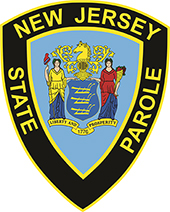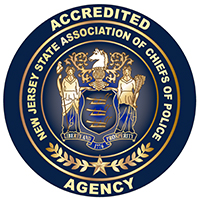Division of Community Programs
The Division of Community Programs is dedicated to developing, coordinating and managing the provision of quality treatment and services to individuals under parole supervision. This is done through community-based programs, community partnerships, grant initiatives and special projects designed to support the re-entry and effective supervision of offenders, to promote pro-social behavior and to improve the quality of lives in our communities.
This Division administers contracts for the operation of Community Resource Centers, the Reentry Substance Abuse Program (RESAP) and Stages to Enhance Parolee Success (STEPS) residential programs, the Mutual Agreement Program (in partnership with the Department of Human Services, Division of Mental Health and Addiction Services), and other specialized programs. Responsibilities include contract administration, grant management, offender referral and placement, program monitoring, quality assurance, development of applicable policies and procedures, and maintenance of essential records and data.
The State Parole Board and its District Parole Offices work in partnership with community-based programs to develop and maintain a continuum of treatment, support services and supervision that encourage and aid offenders in completing their supervision in the community.
Community Resource Centers (CRC) are non-residential programs that provide a number of services to male and female offenders. In addition, CRC programs also provide "step down" services for offenders transitioning from residential community programs. CRC's are operational six (6) days per week to provide offenders with the appropriate level of services to aid with their successful community adjustment.
Target Population
CRC Programs function as a graduated sanction utilized to tailor supervision to the needs of offenders as an alternative to further incarceration as well as to provide assistance to offenders in need of educational, employment, life skills, substance abuse counseling and other related programming.
Program Services
All offenders assigned to a CRC are expected to participate in programming services until their Parole Officer modifies their participation in or discharges them from the CRC. Program completions or modifications are based upon each offender's level of active participation and overall positive adjustment. Offenders who obtain full-time employment can be considered for early program completion. CRC Programs provide the following services: life skills development; stress and anger reduction; job readiness skills; employment counseling and placement; academic assistance; money management; family intervention; parenting skills; mental health referrals; and the development of housing resources for offenders.
Discharge Plan
The discharge plan is a primary component of the CRC Program that identifies and coordinates the needs and provisions of aftercare services to ensure a continuity of required services.
GEO PLEASANTVILLE
700 East Blackhorse Pike, Suite E-5
Pleasantville, NJ 08232
Phone: 609-389-7756
GEO ELIZABETH
208 Commerce Place, 2nd Floor
Elizabeth, NJ 07201
Phone: 908-282-1001
GEO NEPTUNE
2040 6th Avenue, Suite A
Neptune City, NJ 07753
Phone: 732-774-0777
GEO NORTH BRUNSWICK
GEO VINELAND
1338 North Delsea Drive, Suites 4-5
Vineland, NJ 08360
Phone: 856-696-4579
AREA MANAGER - GEO FACILITIES
Matt Wirtner
Office: 704-543-3426
NEW JERSEY REENTRY CORPORATION
9 Basin Drive, Suite 190
Kearny, NJ 07032
Phone: 973-982-6071
KINTOCK PATERSON
219-223 Ellison Street
Paterson, NJ 07506
Phone: 973-792-7040
KINTOCK NEWARK
19 Meeker Avenue
Newark, NJ 07114
Phone: 973-792-6275
NEW JERSEY ASSOCIATION ON CORRECTION
EGALITY CRC PROGRAM
1701 South Broad Street
Hamilton, NJ 08610
Phone: 609-438-1001
VOLUNTEERS OF AMERICA – DELAWARE VALLEY
101 South 17th Street
Camden, NJ 08105
Phone: 856-963-7972
The Kintock Group
- Kintock Bridgeton (STEPS) – Male Parolees
3 West Industrial Blvd.
Bridgeton, NJ 08302
Phone: 856-459-2700 - Kintock-Newark (STEPS) - Male and Female Parolees
50 Fenwick St.
Newark, NJ 07114
Phone: 973-622-1400
New Jersey Association on Correction
- Parole Aftercare and Transitional Housing (PATH) Program - Male Parolees
33 Remsen Ave.
New Brunswick, NJ 08901
Phone: 732-846-7220
Volunteers of America - Delawre Valley
- Liberty Street Addiction Treatment Program (RESAP and PROMISE - Male Parolees)
510 Liberty St.
Camden, NJ 08104
Phone: 856-583-2220 - Garrett House Program (RESAP and PROMISE – Female Parolees)
509 Cooper St.
Camden, NJ 08102
Phone: 856-964-6966
Legend:
STEPS – Stages to Enhance Parolee Success Program
RESAP - Reentry Substance Abuse Program
PROMISE – Program for Returning Offenders with Mental Illness Safely and Effectively
PATH – Parole Aftercare and Transitional Housing Program
Mutual Agreement Program (MAP) facilities are private, not-for-profit, licensed residential substance abuse treatment programs located throughout the State.
Target Population
The goal of the program is to afford male and female parolees the opportunity to participate in private substance use disorder treatment as a special condition of parole. MAP can also be required as a special condition of parole for parolees to reduce the risk of addiction-related behavior.
Program Services
MAP facilities provide a highly structured therapeutic environment, which introduces intensive therapy for behavioral and psychological problems related to addiction. Therapeutic treatment activities include group and individual counseling; cognitive behavioral intervention; encounter and peer group interaction; family counseling; life skills training; relapse prevention and drug testing, all with the purpose of behavior modification.
The program was first implemented in 1984 as a cooperative effort between the Department of Corrections, the Department of Health and the State Parole Board.
Discharge Plan
When a parolee nears completion of MAP treatment, an individualized discharge plan is developed. The discharge plan is a primary component of MAP that identifies and coordinates the needs and provisions of aftercare services to ensure a continuity of treatment and required services when the parolee is released to the community on parole or upon expiration of sentence.
Outpatient Services
In addition to residential treatment, MAP offers licensed treatment facilities to provide services for those who require outpatient and intensive outpatient substance abuse counseling. These facilities provide licensed treatment and community networking as a reinforcement of the individual's parole plan and may be utilized by respective district parole offices as alternatives to re-incarceration for appropriate technical parole violators.
The Primary purpose of the Stages to Enhance Parolee Success (STEPS) Program is to provide a network of comprehensive, community-based residential programs to provide specialized supportive reentry services to address the needs of both male and female parolees.
Target Population
As a step-down from incarceration, STEPS Programs provide supportive residential services to parolees transitioning to the community. In addition, STEPS Programs offer a structured alternative to re-incarceration for parolees who have violated the conditions of their parole.
Program Services
The STEPS Program shall provide parolees with a continuum of supportive residential programs and services, including but not limited to: life skills development; anger and aggression reduction; substance abuse counseling and relapse prevention; job readiness skills; employment counseling; academic assistance; money management; housing placement assistance and transitional support services. Successful program completion depends upon how well the parolee has met the program goals as indicated in his/her individualized service plan.
Discharge Plan
The discharge plan is a primary component of STEPS that identifies and coordinates the needs and provisions of aftercare services to ensure a continuity of required services when the parolee is released to the community on parole or upon expiration of sentence.
The primary purpose of the Re-entry Substance Abuse Program (RESAP) is to provide a network of comprehensive, community-based residential substance abuse programming for both male and female parolees.
Target Population
As a step-down from incarceration, RESAP provides supportive residential services to parolees transitioning to the community requiring substance abuse programming. In addition, RESAP offers a structured alternative to re-incarceration for parolees who have violated the conditions of their parole and experienced a substance abuse relapse.
Program Services
RESAP shall provide parolees with a continuum of supportive programs and services along with appropriate levels of case management and supervision that ensure a positive transition and subsequent sustainability in the community reintegration process. RESAP provides an intensive and comprehensive approach to substance abuse, addiction and relapse prevention. This approach requires programming in four specific phases: Stabilization and Orientation; Intensive Relapse Prevention and Education; Release and Reintegration and Discharge Planning.
Discharge Plan
The discharge plan is a primary component of RESAP that identifies and coordinates the needs and provisions of aftercare services to ensure a continuity of required services when the offender is released to the community on parole or upon expiration of sentence.
The New Jersey State Parole Board’s Office of Gender Responsive Services is committed to developing and conducting ongoing training for staff and decision-makers to ensure that all people are treated with dignity and respect and enjoy the full protections of the law. The Office of Gender Responsive Services identifies community resources to address the unique needs and challenges experienced by women and the LGBTQ+ population under NJSPB supervision, including safe and secure housing, employment assistance, child care, health care, mental health services, and community support organizations.
For more information about the State Parole Board's reentry programs, please contact Division of Community Programs at:
Division of Community Programs
P.O. Box 862
Trenton, NJ 08625
(609)-292-4257 Extension # 5
SPB-Public-Info-Office@spb.nj.gov
 Official Site of The State of New Jersey
Official Site of The State of New Jersey
